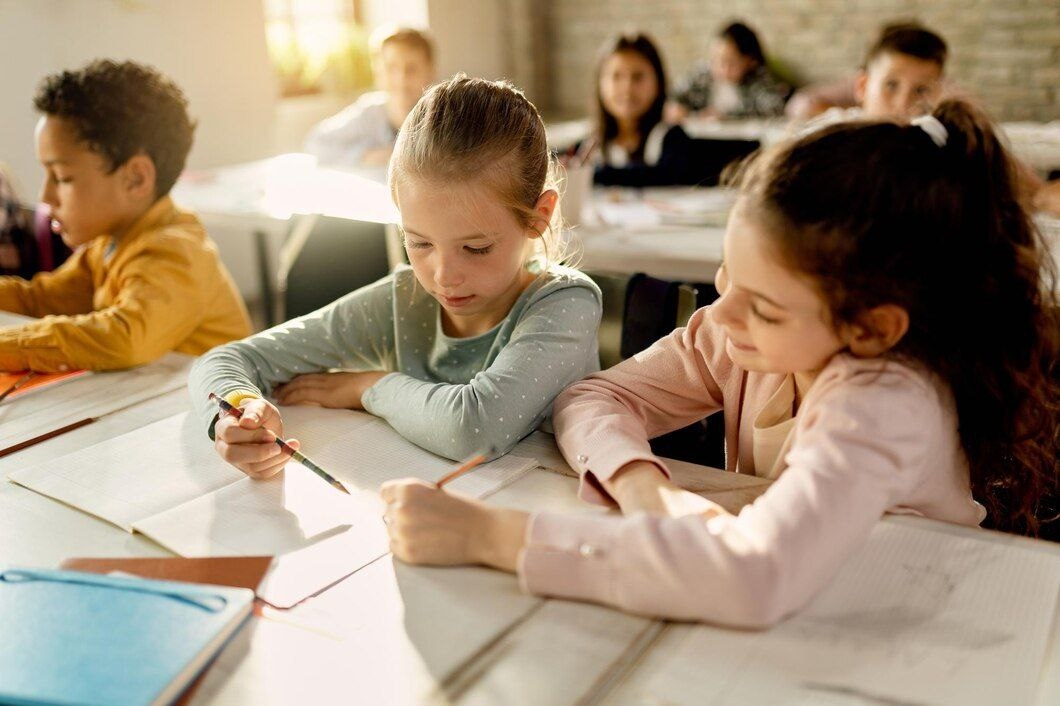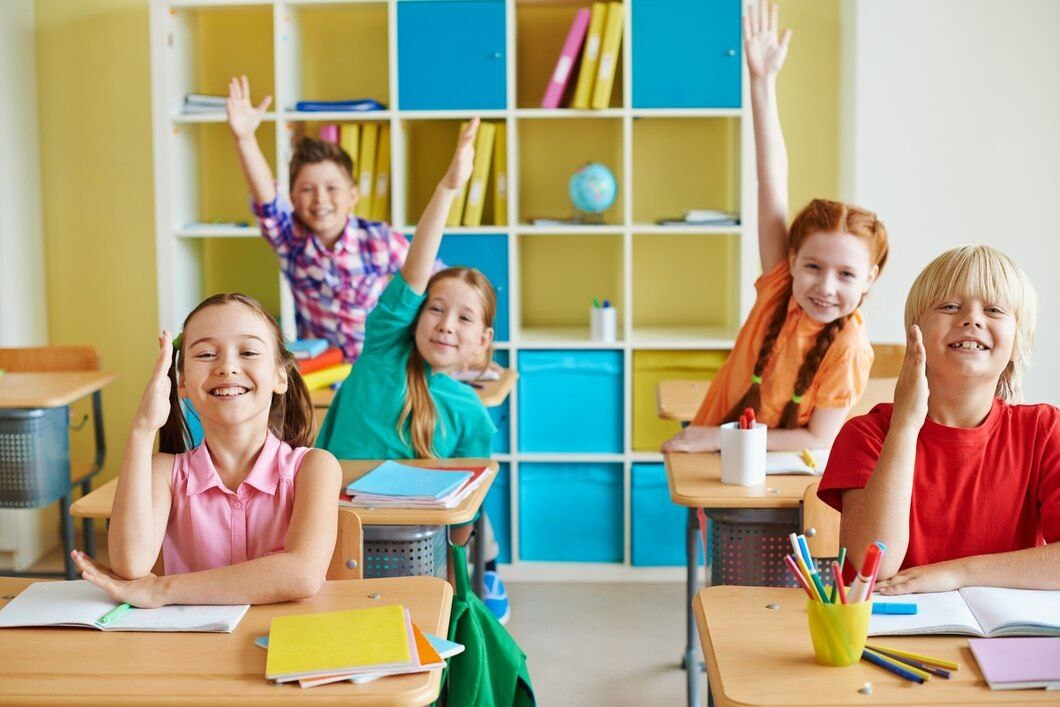Schools Between Educating and Indoctrinating Children
Two people may not disagree on the importance of schools in human life. Instead, all scientific, technical, intellectual, and cultural development that we see before us has passed through these schools, as it is considered the first cell to build any country, society, or civilization.
In this article, we will learn about the importance of schools in the progress or backwardness of people, and we will talk about the essential educational systems in the world, namely the Finnish system, and the most important points that distinguish it from others.
Why are schools so important?
Schools are important because they deal with the most vulnerable group and the most sensitive to the surrounding factors and ideas, which is the children category. Children, especially in the early school years, are liable to accept any idea presented due to the number of questions that occupy their brains at this stage. They try to find the answers without having the ability, awareness, or skill that entitles them to verify the validity of these answers presented to them, and this is what makes this stage dangerous.
What can happen if schools are below standard?
In case schools are not at the required level of educational, scientific, and psychological methodology, this may lead to the creation of an unhealthy school environment, which may lead to a large extent to the production of generations that are unhealthy in terms of psychological and social aspects, and in terms of awareness of the other, acceptance of difference, and establishing relationships with people from different cultures and civilizations.
What is the worst methodology applied in schools?
The worst thing that can happen in any school is children's indoctrination, which is introducing them to ideology’s paths and pushing them to choose a specific political or doctrinal path. This is a clear violation of childhood, as the great Lebanese writer "Gibran Khalil Gibran" said: "Your children are not yours, your children are the children of life." Children should play and have fun away from fanaticism and religious, political, and ethnic alignments.

A clear example of extreme indoctrination:
One of the most extreme examples of children's indoctrination is entering them into schools that teach them erroneous and extremist ideas, in which they are brainwashed. As we mentioned, children take the information presented to them as absolute truths without ambiguity or doubt, as the largest and most important part of human personality crystallizes and forms during childhood.
Psychology experts believe that after going through childhood, it becomes difficult to make a radical change in the personality, ideas, and beliefs of these children, especially after they enter the youth stage. This is because selective bias, as neuroscientists call it, may activate in their brains, as the brain chooses news, information, and ideas that fit with their beliefs, principles, and with what they grew up on in childhood.
On the other hand, they also work to ignore any idea or information that is contrary to what they know. Thus, changing ideas or a person’s personality becomes more complex with time, and with every year that passes, the difficulty increases more, and the possibility of change decreases significantly. Here comes the importance of schools in influencing the attitudes and behaviors of entire generations; thus, they are responsible for the quality of society and its level of progress and advancement.
Indoctrination of children in schools is a vicious cycle of indoctrination:
There are many schools located primarily in developing countries or third-world countries, spreading many misconceptions stemming from ignorance of the principles and basics of sound educational and psychological methodology. This leads to the production of unhealthy generations, among whom come teachers who go to the same schools and repeat the same mistakes and abnormal methodologies. This causes society to spin in a vicious circle of failure, ignorance, and turmoil, wasting the energies of its youth in matters in which it has no interest.
Are we exaggerating the shortcomings of some educational systems?
There is no doubt that the shortcomings of the educational system in many countries are visible. You see students disturbed by the vast curricula and their abundance of tautology. You also see teachers running to finish the curricula at the end of the school year, but they cannot do so, not to mention the constant complaint by children about their heavy school bags causing back pain. This reinforces the students' boredom with the school and its heavy curricula, increases their aversion to the educational process, and confirms the existence of a real problem in the educational system.
The educational system in Finland has the lowest number of hours in the world:
For example, the educational system in Finland is one of the most important at the school level, and it may be the first in the world. School education in this country takes an entirely different turn, as the teacher and the student agree on a certain number of monthly hours. In most cases, it is within the limit of twenty hours per month, a very small number of hours compared to the rest of the countries.

Features of the Finnish education system: Things we have never heard of
The distinction of the Finnish education system does not stop at this point. You may be surprised if you know that if a student becomes bored during the school hour or the teacher’s explanation, they have the right to ask their teacher’s permission to go out and work in the school’s cafe or shop, where they learn a lot of things that are useful and fun at the same time, including:
- The principles of addition, subtraction, and arithmetic operations in a practical way.
- The simple principles of buying and selling.
- How to properly deal with people, tact styles, and their importance in practical life.
- This step is of great importance in cultivating self-confidence in the child and sending a message to them that they can rely on themselves.
- Cultivating a culture and love of work in the child’s soul. This establishes a productive person in all areas of life.
The impact of the Finnish education system on the psychological and intellectual aspects:
The activities that these children do during their time in school restaurants or stores have a great impact on their education, as they receive orders from customers, calculate the price of what they ask for, take money from them, and then return the rest to them, in addition to eating meals together with each other or even with their teachers, and then they all participate in washing dishes. This enhances their sense of responsibility and gives them the sense that they can manage their affairs.
The Finnish education system is full of entertainment classes, such as playing PlayStation, chess, and other useful mental games, as well as sports games, such as football and basketball, which have a psychological and emotional role by discharging energy positively.
These matters –in their simplicity- are significant from a psychological, mental, intellectual, and educational point of view. Children, whether in Africa, Europe, the Middle East, or the United States of America, are born with the same intellectual and mental capabilities, and intelligence is a skill, upbringing, and refinement in the first place. These critical points that Finland is concerned with, for example, determine whether the education system is a failure or a success.
How does the educational system determine the state of society, whether it is chaos or discipline?
There is no doubt that many of us have woken up in the morning and are forced to go to school, and we cannot deny our joy when a teacher is absent from the scheduled class or our fearful sleep of the teacher’s oppression, or that we learned discipline through fear only. Learning out of fear does not produce a person who is disciplined or committed to the laws of society. Rather, it makes them afraid of the punishment resulting from violating the laws. This contradicts the message of education and school in making a person an individual who is committed to the laws with a deep belief in the importance of laws in building countries, and you see them not only abiding by the laws of their country but also rushing to defend it if it is violated.
This is not just talk but a fact embodied on the ground. We see chaos prevailing in developing countries, where individuals rush to violate laws and regulations once the country is weak. This is because they were brought up to follow the laws for fear of punishment. When the punishment is over, they find no deterrent in front of them, unlike those who imbibed the love of laws in the belief that it is the only way to protect their rights and the rights of others and to build an advanced and prosperous society. The question may come to your mind: Is all this related to school? The answer is “yes.” The school is either teaching or indoctrinating.
Read also: Theoretical Education and Behavioral Application
In conclusion:
At the end of this article, we can summarize everything that came in it with the words of one of the philosophers: “Give me a good education, and I will give you a good person.” Good education is not only through teaching and educational curricula. Instead, it pays attention to the psychological, emotional, and mental aspects, which are no less important than the academic courses.